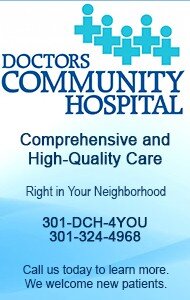Loving Your Heart
Little Known Facts About African-American Women and Their Heart Health
February is heart health month and the campaign to get women to understand their risk is on!
If you think that heart disease is a man’s problem, you’d be wrong. Heart disease is the number one killer of women in the U.S., claiming one in four women’s lives each year. And for African-American women, the risk of heart disease is disproportionately higher than in other racial and ethnic groups. And to make matters worse, African-American women are twice as likely to die of it. Add that COVID-19 increases damage to the heart, and it’s easy to understand why people with heart disease are challenged more than ever and why awareness - not just in February - is so important.
A Few Unsettling Facts
According to the American Heart Association:
Cardiovascular diseases kill nearly 50,000 African-American women each year.
Of African-American women ages 20 and older, 49% have some kind of heart disease.
Only 1 in 5 African-American women believes she is at risk for heart disease.
Only 52% of African-American women are aware of the signs and symptoms of a heart attack.
Only 36% of African-American women know that heart disease is their greatest health risk.
More than 40% of non-Latinx Blacks have high blood pressure, which is more severe in Blacks than whites, and starts at an earlier age.
Coronary heart disease is the most common form of heart disease, according to the National Institutes of Health (NIH). Often referred to simply as “heart disease,” it is a disorder of the blood vessels of the heart that can lead to a heart attack. It is a lifelong condition and will steadily worsen unless people make changes in their daily habits.
The Truth About High Blood Pressure
More than 40 percent of non-Latinx Blacks have high blood pressure (also known as hypertension); in fact, the prevalence of high blood pressure among African-Americans is the highest in the world (American Heart Association). Hypertension is more severe in Blacks than in whites, and develops earlier in life. High blood pressure is also a leading cause of stroke and African-American women are nearly twice as likely than white women to have a stroke. But if high blood pressure is diagnosed early and treated, that could reduce the damage it can do to the heart.
Why Is Heart Disease Targeting African-Americans?
Researchers in a study have found that there may be a gene mutation that makes African-Americans much more sensitive to the effects of salt, which in turn increases the risk of developing high blood pressure. In people who have this gene, as little as one extra gram (a half teaspoon) of salt could raise blood pressure by as much as five millimeters of mercury (mm Hg), according to the American Heart Association.
The African-American population also tends to have higher rates of obesity and diabetes, which puts them at greater risk for high blood pressure and heart disease. But for many African-American women, particularly those who consider themselves perfectly healthy, perception may not always equal reality.
So What To Do?
For starters, lower the amount of salt and sodium you eat. In fact, make a serious effort to improve your eating habits by learning about healthy eating, and healthy cooking skills. And of course, if you’re not already active, get moving.
The NIH has an action plan aimed at helping women lower their chances of developing heart disease and its risk factors.
Share this with other women.
Sources: American Heart Association, National Institutes of Health, Centers for Disease Control






